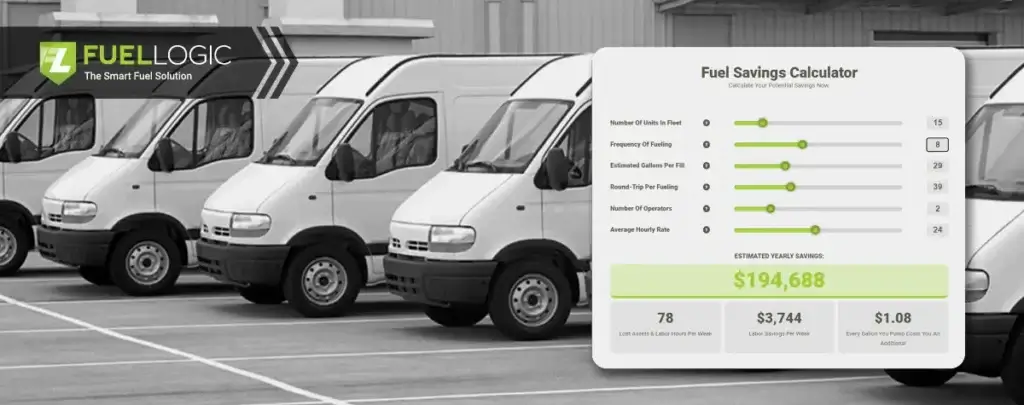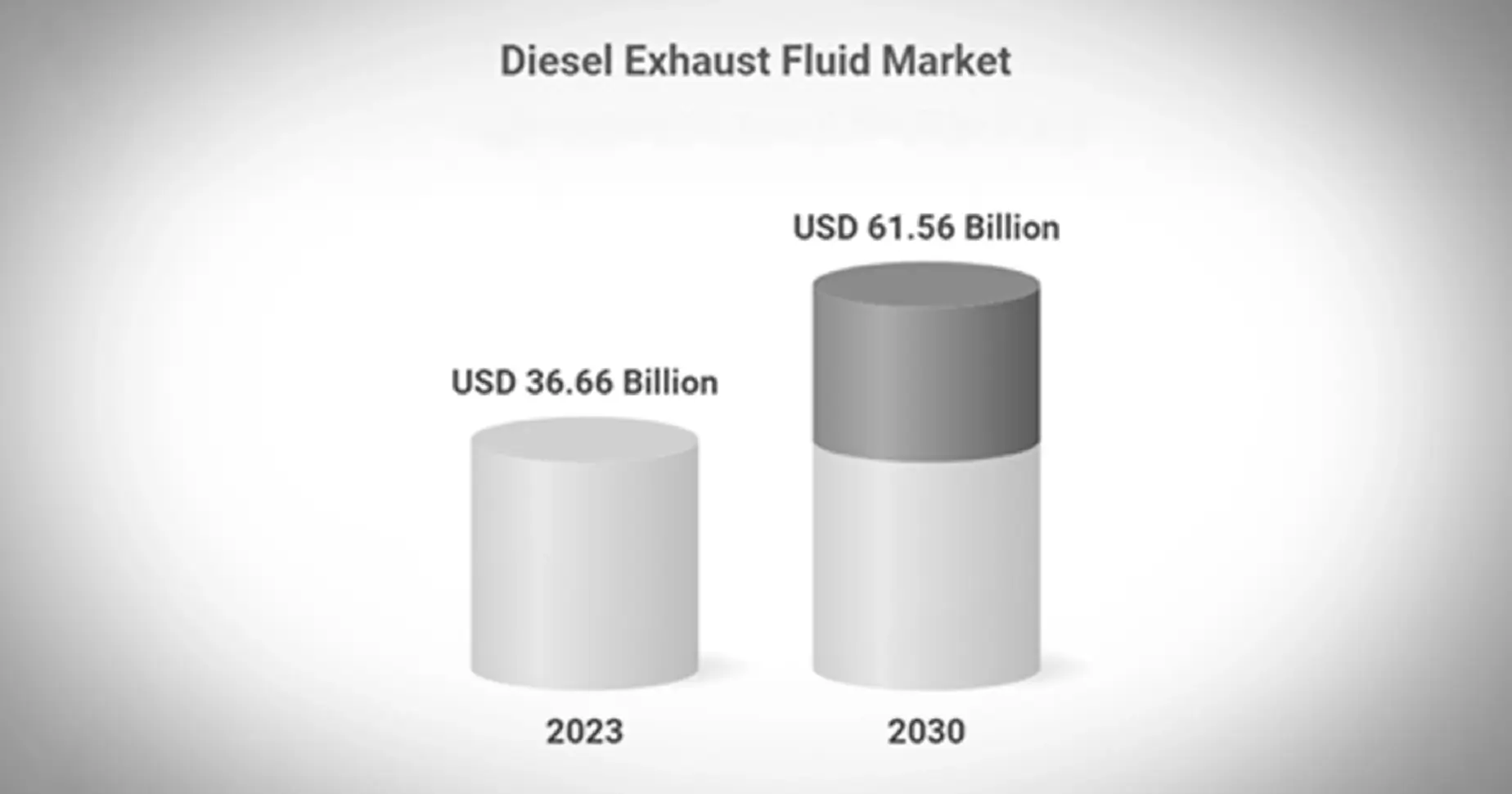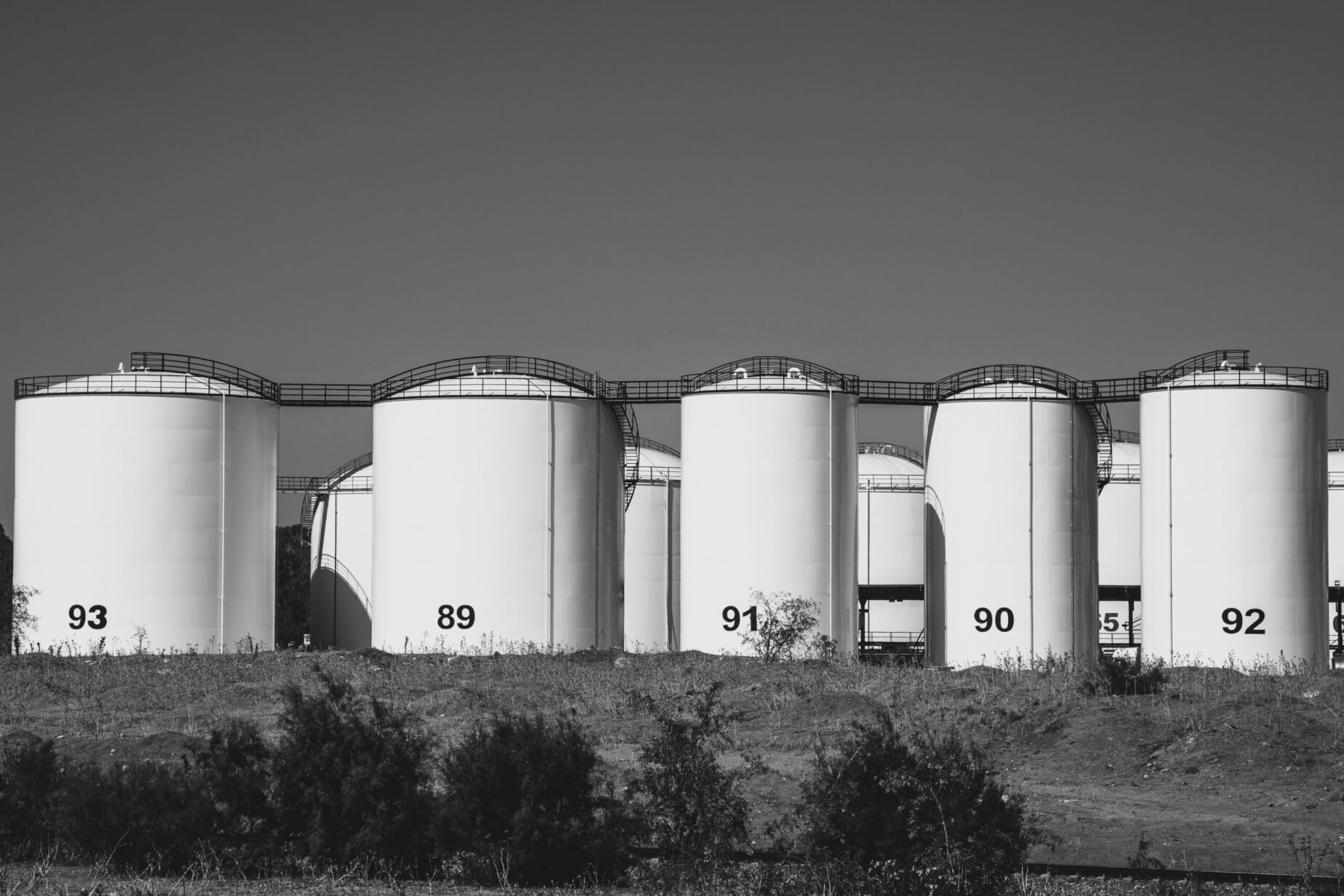Rising fuel costs, driven by the Ukrainian-Russian conflict, disruptions in Red Sea shipping, and fluctuating crude oil prices, have significantly impacted fleet operators. According to a quarterly report by the Department for Energy Security & Net Zero, over the first quarter of 2024, petrol prices rose by 3.8% to 144.7 pence per liter in the UK. While diesel increased by 4% to 153.7 pence per liter.
However, as a fleet owner, you can mitigate the impact of increasing fuel costs with the help of a fuel estimator. But how can it contribute to fuel savings and what to consider when choosing a fuel estimator? Find out below!
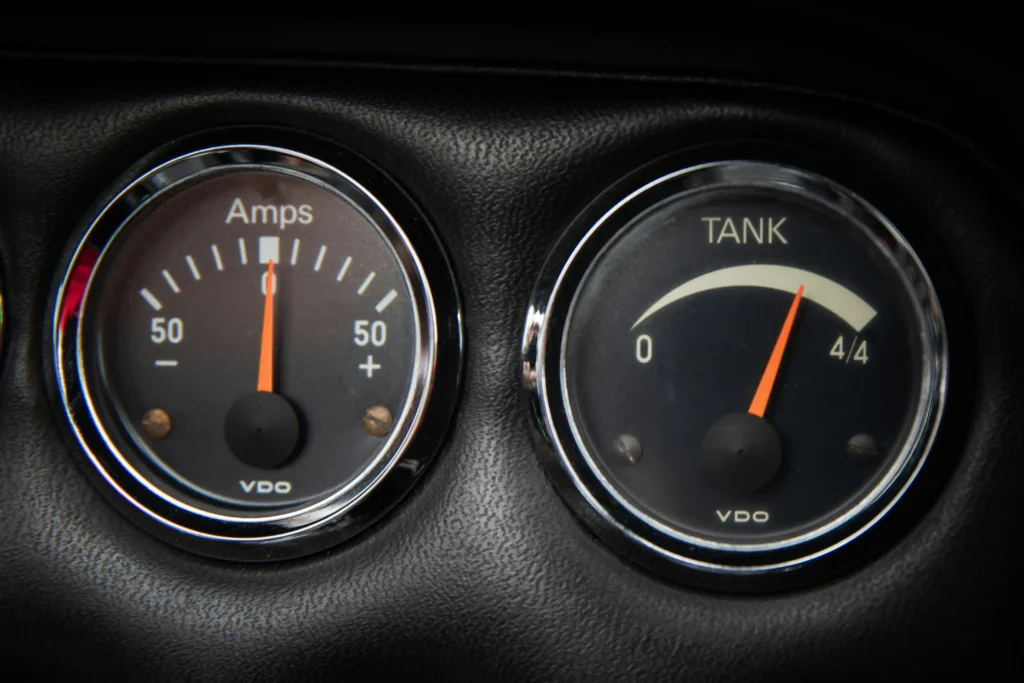
What Is a Fuel Estimator?
A fuel usage estimator is a helpful tool in fleet management that predicts fuel use based on factors like distance, vehicle type, load, and driving conditions. It estimates how much fuel a fleet will need for a specific route or task and cost of fuel consumption. There are many types of general fuel estimators such as:
1. Online Tools
Many websites provide online fuel estimators where you’ll need to enter your vehicle details and mileage to estimate fuel consumption and cost based on current prices. You can also calculate fuel costs for specific trips by entering start and end points, fuel efficiency, and current prices.
One such Fuel Savings Calculator by Fuel Logic enables you to check your monthly fuel expenses for your fleet. By adjusting settings like fleet size, fueling frequency, gallons per fill, and more, you’ll get estimates of your yearly savings and average savings per gallon.
2. Software Solutions & Mobile Apps
These are full-fledged fleet management solutions provided by companies to track fuel use, costs, and vehicle maintenance for large fleets. They can also analyze data, generate reports, monitor vehicle performance, and spot issues affecting fuel efficiency.
Fleet management software often includes mobile apps for drivers to log fuel purchases and mileage. These apps can record fuel purchases, track mileage, and calculate fuel efficiency. Other software solutions include fuel card software. If your fleet uses fuel cards, this software provides detailed info on fuel use, costs, and driver behavior.
Rising Fuel Costs and Fleet Management Challenges
Rising fuel prices can greatly impact fleet budgets, as fuel is a major expense. Where increased costs hurt profits, drops in prices offer brief relief, but the constant fluctuations make managing costs difficult. Here are some common challenges that fleet owners and managers might face while managing fleets:
1. Inaccurate Fuel Cost Forecasting
Constantly changing fuel prices make it hard to predict future costs. Global events and supply issues also add uncertainty to price forecasts. While higher demand in peak seasons can cause price spikes as well.
2. Difficulty In Optimizing Route Planning
Distance, traffic, and terrain can affect fuel use when planning routes. Real-time traffic updates and unexpected events can also force route changes, impacting fuel consumption.
3. Inefficient Fuel Usage Due to Driver Behavior
Speeding, quick acceleration, and hard braking increase fuel use. Idling for long periods and poorly maintained vehicles, like those with low tire pressure or engine issues, also waste fuel.
4. Fuel Theft and Unauthorized Fuel Use
Fuel theft causes direct losses, additional fuel costs, equipment damage, and operational issues. It can lead to delays, lost business, reduced revenue, and customer dissatisfaction. A history of fuel theft can also damage a fleet’s reputation, making it difficult to keep or attract customers.
How a Fuel Estimator Can Help?
A fuel calculator predicts fuel use and costs, usually based on key details like total vehicles, distance, and how often each vehicle needs fuel. Using these details a fuel estimator may perform the following calculations:
- Total Fuel Consumption – Multiply the number of vehicles, how often they’re fueled, gallons per fill, and distance per fueling.
- Fuel Cost Estimate – Multiply the total fuel used by the current fuel price.
- Driver Wages – Calculate labor costs by multiplying the number of drivers, their hourly wage, and time spent refueling.
You’ll find there are 3 types of fleet fuel estimators that either come standalone or integrated with a system, usually, used by fleet owners and managers:
- Standalone Software Applications – These programs focus on fleet fuel estimation, offering features like tracking fuel use, cost analysis, and route planning.
- Integrated Fleet Management Systems – These systems include various features like fleet tracking, maintenance, a fuel management system, and a built-in fuel estimator.
- Web-Based Tools – These tools are web-based and don’t require integration with your fleet software. They let you enter fleet details to get estimates of fuel use and costs.
Benefits of Using a Fuel Estimator
A fleet fuel estimator provides many benefits that can boost fleet operations, cut costs, and improve fuel economy. Here’s how it can help fleet managers and owners:
Cost Savings
Fuel cost estimators provide accurate fuel budgets based on fuel consumption for better financial planning. They can predict future fuel needs, helping plan bulk purchases that may offer discounts. For instance, using the fuel calculator by Fuel Logic, you can order bulk fuel delivery at competitive rates for significant cost savings. We offer no-contract, 24/7 on-site delivery service and will bring you fresh fuel from fueling racks.
Increased Efficiency
Real-time fuel cost estimates by a fleet fuel calculator can aid in planning more efficient routes, cutting travel time and fuel use. This reduces downtime and the risk of running out of fuel, leading to timely deliveries and happier customers. Fuel data can also help in targeting less efficient vehicles early on, allowing for preventive maintenance and better fuel efficiency.
Enhanced Driver Behavior
Fuel estimators can pinpoint drivers who idle too much, which wastes fuel. They can do this by comparing fuel use to distance traveled. If fuel consumption is high but the distance covered is low, it likely means there’s too much idling. This helps you identify who needs fuel-efficiency training to improve overall driving habits.
Reduced Risk of Fuel Theft
Estimators help track fuel usage trends and spot unusual patterns that may signal theft. This data can be used to create better fuel management practices, like using specific fueling stations and controlling fuel cards.
Environmental Sustainability
A fuel calculator helps promote environmental sustainability by accurately estimating fuel use, which reduces carbon emissions and helps fight climate change. It spots inefficiencies, allowing for adjustments that cut waste and emissions. Tracking fuel use also helps businesses meet environmental regulations and standards.
Improved Decision-Making
A fuel calculator helps businesses make smart choices using accurate data. By tracking key metrics like fuel efficiency and costs, businesses can spot areas for improvement and monitor progress. The calculator can also help fleet managers and owners simulate different scenarios to see how changes in routes, no of drivers, or frequency of fueling affect fuel use and costs.
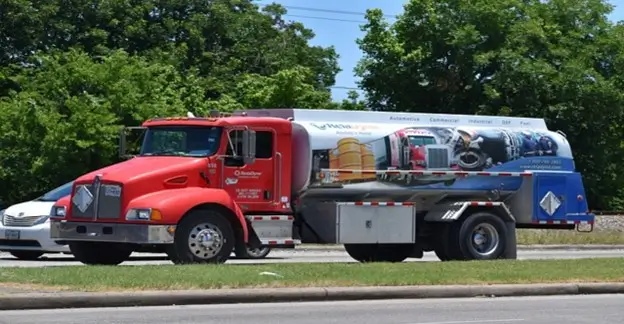
Additional Considerations When Choosing a Fuel Estimator
When choosing a fuel estimator, consider more than just its main features. Here are some important factors to check:
1. User-Friendly Interface
The fuel estimator’s interface should be simple to use, with clear labels and an organized layout. Key features should be easily accessible for quicker tasks and look for customizable settings like units and data views as they’ll improve usage experience.
2. Integration With Existing Fleet Management Software
Make sure the fuel calculator integrates smoothly with your fleet management system. Transfer of data from software to estimator automatically will reduce manual input and errors in estimates, while a unified dashboard will offer a full view of fleet performance, including fuel use.
3. Customizable Data Input Options
The estimator should include detailed vehicle profiles, like make, model, engine size, and fuel type. It should also account for factors like road type, traffic, weather, and cargo weight, as these all affect fuel efficiency.
4. Reporting and Analytics Capabilities
The fuel calculator should generate reports customized by vehicle, driver, or route, using visuals like graphs to highlight trends and issues. It should also track key metrics like fuel efficiency, costs, and consumption per mile.
5. Mobile App Accessibility (Optional)
A mobile fuel estimator app can offer real-time fuel data to monitor fleet performance on the go. Some apps also include features like remote engine shutdown and geofencing for added security and cost savings.
6. Software Licensing Fees
While features are important, consider costs of a fuel estimator as well. A fuel calculator’s cost may vary by software and fleet size. Many estimators use a subscription model, while some charge per vehicle, which may be cheaper for larger fleets. In some cases, you can buy a one-time license.
7. Implementation and Training Costs
Installing and setting up the fuel estimator might need technical help, adding costs. Training your team through workshops, tutorials, or on-site sessions will add to expenses as well. Switching systems may also require data migration, increasing implementation costs.

Implementation and Best Practices
When choosing a fuel estimator, there are several variables to evaluate for its effective implementation and use such as:
1. Factors to Consider When Selecting a Fuel Estimator
- Accuracy – The fuel calculator should give reliable fuel predictions, validated by real data, considering factors like vehicle type, load, terrain, and driving conditions.
- Customization – It should adapt to your fleet’s needs, allowing customization for different vehicles, fuel types, routes, and driving styles.
- Integration – The tool should integrate with your fleet management systems for easier data collection, analysis, and reporting.
- Cost-Effectiveness – Assess costs, including fees and maintenance, against potential fuel savings it can deliver.
- Data Privacy – Make sure the fuel estimator protects your fleet data and follows data privacy regulations.
2. Tips for Integrating a Fuel Estimator With a Fleet Management System
Make certain the estimator’s data format matches your fleet system to avoid conversion issues when transferring data. Use APIs for direct, automated data exchange and keep data updated between systems with scheduled or real-time transfers. Furthermore, check data accuracy and consistency to prevent errors. Also, thoroughly test and debug integration before going live.
3. Importance of Training Staff and Ongoing Support for Effective Use
Training ensures staff can use the fuel estimator properly, covering data input, analysis, reporting, and troubleshooting. It also helps employees interpret results, make informed decisions, and troubleshoot fuel theft and consumption issues. Besides, ongoing training keeps your team updated on features and best practices, improving fuel efficiency and fleet management.
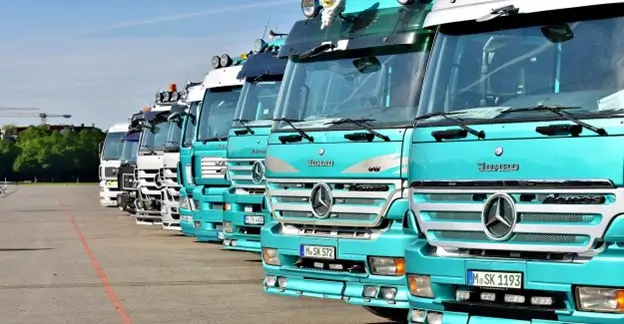
Key Takeaways
A fuel estimator boosts fleet efficiency and cuts costs by predicting fuel use and expenses, optimizing routes, and improving decision-making. The ROI of a fuel estimator can be high, as it cuts fuel use, identifies inefficiencies, and helps prevent theft, leading to substantial savings.
Improved efficiency also lowers emissions, which can lead to environmental benefits and tax incentives. In a competitive market, fuel estimators are crucial for fleet managers and owners to save money, reduce environmental impact, and stay ahead of competitors.
FAQs
1. How to calculate fuel cost?
To calculate fuel cost, multiply the number of gallons used by the price per gallon.
2. How to calculate how much fuel is needed for a trip?
First, estimate the distance of trip and use your vehicle’s fuel efficiency (miles per gallon) to determine the amount of fuel needed. Then, divide distance by fuel efficiency.
3. How can you estimate the fuel range of your vehicle?
Multiply your vehicle’s fuel tank capacity by its fuel efficiency to estimate maximum fuel range on a full tank.
4. How do I figure out my fuel cost per mile?
Divide your total fuel cost by total miles driven.
5. Is there an app to calculate gas for a trip?
Yes, there are many apps available that can help you calculate estimated fuel needs for a trip such as GasBuddy or Fuel Savings Calculator.
Start Your Fuel Savings Now With Fuel Logic Fuel Estimator
A fuel estimator is important to cut fuel consumption and costs, optimize routes, and prevent fuel theft for fleets.
Simply enter your details, customize, and get your annual and per-gallon savings report emailed to you for free using Fuel Logic’s fuel savings calculator. We also provide on-site fuel delivery services and custom fuel management solutions that work with or replace your current systems. Start saving on fuel now. Try our fuel estimator and order online fuel delivery today!

